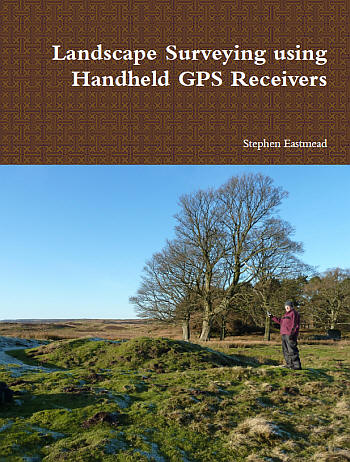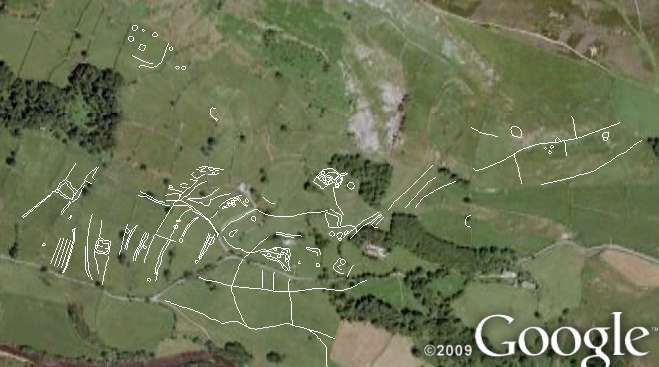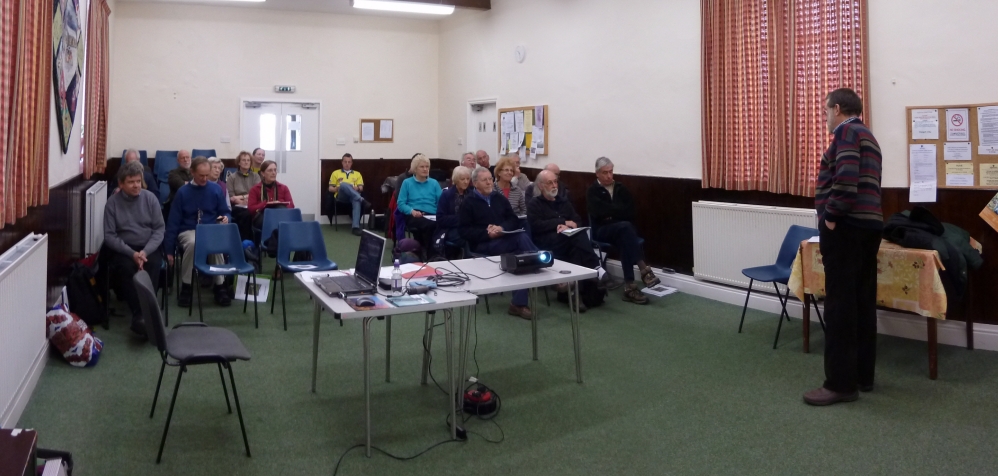SWAAG GPS Surveying Technology
The book below is now available as e-Book or Paperback
The E-Book can also be read on your computer using
Adobe Digital Editions
(Free Download)
To see a preview of this book click the Preview link on
this webpage
View
sample maps (pdf) created by the techniques described. Zoom
in to them to see their quality.
Lulu often discount books usually in the range 10% to 25% for
periods of 3 or 4 days every 2 weeks.
Checkout either SWAAG or
Lulu's Home
pages to see if there is a current offer.
.

All proceeds go to enable SWAAG's work in Swaledale.
Chapter 1. Introduction
Chapter 2. Global Positioning System (GPS)
Chapter 3.
GPSr Instruments
Chapter
4.
Computers
Chapter
5.
Software
Chapter 6.
Configuring your GPS
Chapter 7. Waypoint
Accuracy
Chapter 8. Measuring GPSr
Waypoints
Chapter 9. External
Aerials
Chapter 10. Handheld GPSr Performance
Chapter 11. Introduction
to Mapping Techniques
Chapter 12. TrackMaker
Chapter 13. EasyGPS
Chapter 14. Using TrackMaker data on Google Earth
Chapter 15. Using TrackMaker data with Digital Mapping Software
Chapter 16.
Digital Maps: shp,
dxf, tiff and all that stuff
Chapter 17. Creating maps using
Graphics Software
Chapter 18. DrawPlus Essentials
Chapter 19. DrawPlus
Chapter 20. Techniques for Drawing
Archaeological Features
Chapter 21. A Practical View
Chapter 22. DrawPlus Output
Chapter 23. DrawPlus and Copyrighted Maps
Chapter 24. Using IrfanView
Chapter 25. SWAAG Publications
Appendix 1.
Comma Delimited Data
Acknowledgments
Index
90 pages
Unfortunately the cost of colour printing is
high, the small profit made when you buy this book goes directly
to the Swaledale and Arkengarthdale Archaeology Group to further
our knowledge of Swaledale archaeology. Lulu frequently offer
discounts for short periods typically 3 to 5 days, and whenever
we are notified we include the information on our Home page so
you can benefit. Whilst this book is available via Amazon please
use Lulu as it
benefits SWAAG more.
To see a preview of this book click the Preview link on this
webpage
|
Summary
A method of producing accurate archaeological maps has been
devised using modern hand held GPS receivers (GPSr). Free or minimum cost
software has been used to produce maps suitable for publication.
The illustrations below indicate what you can do using this method:
Figure 1. Survey data as it is
downloaded from your GPS receiver (GPSr) into free software
(see below), where appropriate waypoints are linked
with lines.

Figure 2. Shows how you can merge
many individual surveys into an area or site map. (Waypoints have
been hidden for clarity)
Figure 1 data is on the western side.

Figure 3. Show that you can then zoom into any
part of the area or site survey to select which part to map.
This data is then imported into a graphics program where you produce
your final map which can contain as many layers of detail as you
require.

Figure 4. Show a map drawn using the above
data.
The style of lines and symbols used can be varied as much as
you like. All if the above lines and symbols where either
already in the graphics software, or created by the graphics
software, or imported into the software.

Figure 5. Chapters in the book show you haw you
can use your GPS data in Google Earth (see below) and as a data
layer on digital mapping.

To see a preview of this book click the Preview link on this
webpage
|
The above SWAAG GPS mapping procedure was presented as a
workshop at Fremington, Reeth in March 2011, organised by Trevor
Pearson.

Peter welcoming 21 attendees at the CBA / SWAAG GPS Mapping
Workshop at Fremington, when the use of navigation grade GPS
instruments in archaeological landscape mapping was presented by
Trevor Pearson (CBA/English Heritage) and Stephen Eastmead
(SWAAG).

SWAAG GPS Surveying Technology - 7 papers by Stephen Eastmead is licensed under a Creative Commons Attribution-NonCommercial-NoDerivs 3.0 Unported License. Based on a work at www.swaag.org.
|







